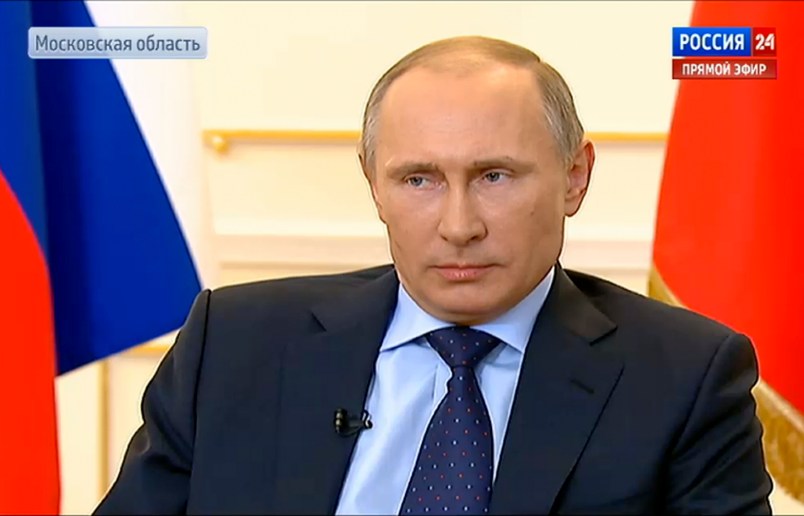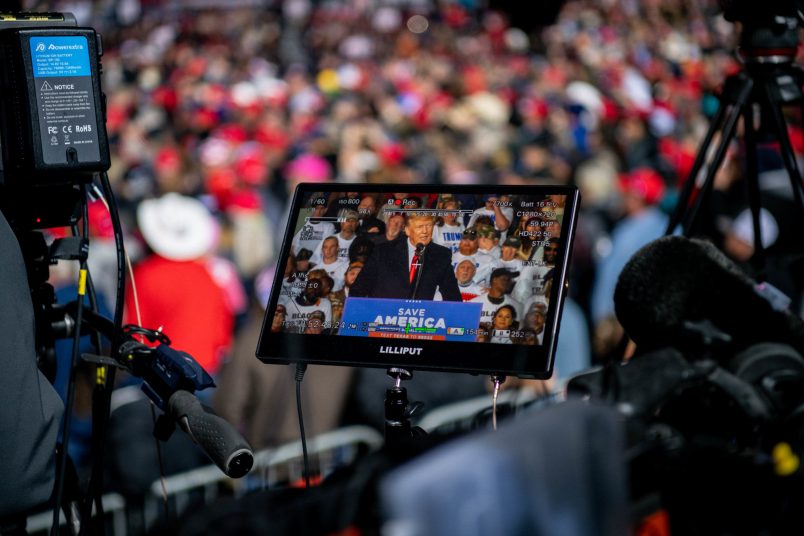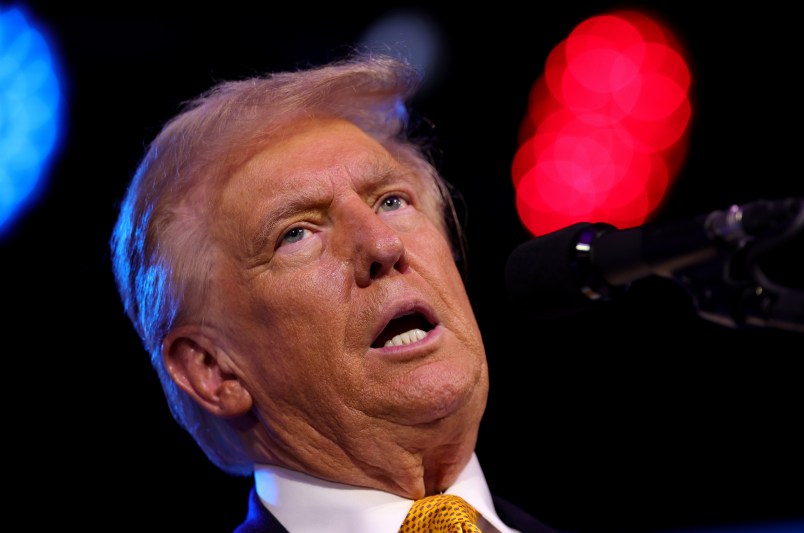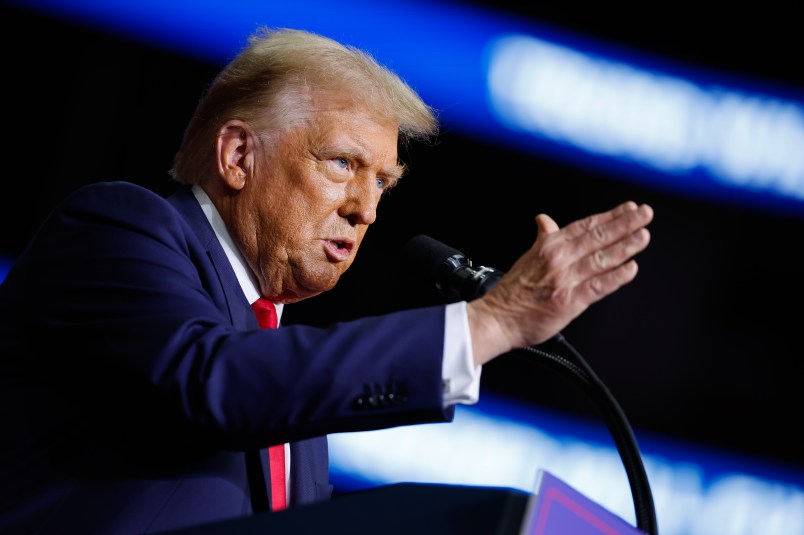I’ve read a number of articles and posts over the last twenty-four hours which have crystallized and also shaped my view that we should be approaching the crisis in Ukraine with more caution and deliberation than we currently are. As I wrote at the outset, you have to really squint hard to see Putin and Russia’s current position as one of strength or one in which he’s improved his position over what it was a month ago, a year ago or even five years ago.
One of the big questions so far in this crisis has been the stance of Germany, which was at first oddly silent in its response and then more leaning toward constructive dialog than confrontation. I was struck by a reader email to Andrew Sullivan’s site in which the reader notes the striking contrast not just between German and US press reaction but the different historical metaphors they’re employing. Here, as we know, everything is World War II, appeasement and containment, if not necessarily explicitly reference to the Nazis and Hitler. In Germany, however, they’re focused on 1914 and the onset of the World War I, a relatively minor crisis pushing the great powers of the day to stumble into a cataclysmic war that destroyed virtually all the losing states and debilitated the survivors.
As it happens, this popular memory on the beginning of World War I is almost certainly wrong. It was the historical consensus in the early decades after the war and it was crystallized and fashioned into a cliche for English-speaking audiences in Barbara Tuchman’s The Guns of August. But a group of revisionist historians writing in the 1960s and 1970s, mainly in Germany, have shown this was certainly not the case. In brief, Germany, feeling its strength was high but in relative decline and worried about the fragility of its key ally Austria-Hungary, intentionally steered the crisis to war. A splendid short book detailing this version of the story is Europe’s Last Summer: Who Started the Great War in 1914?
The difference in emphasis is striking: less on the impact of Putin’s move – undermining norms about how states do and don’t deal with each other – and more on the risk of escalation leading to needless conflict.
Fred Kaplan adds some additional perspective which is consistent with this view. He focuses on a key point that is lost in virtually all the hyperventilation coming out of the Beltway, a point I tried to make a couple weeks ago. Russia is simply not some global power on the march which has to be stopped now because the costs will be higher or unacceptable later.
He makes the point succinctly here …
Just as Putin is not as much in command as many Western hawks suppose, Russia is not as great a power as Putin himself likes to project. It’s at best a regional power, with no global reach. Even his incursion into Crimea is hardly an imperial gesture. Leonid Brezhnev sent five tank divisions into Czechoslovakia. (Now that was aggression!) U.S. military advisers estimate that the Russian army could invade eastern Ukraine if Putin so ordered, but they say it’s much less clear how long they could sustain an occupation, especially with even sporadic insurgent resistance.
That’s the key: Russia really is principally a regional power, making reckless but basically reactive moves right on its doorstep. Very few countries with great power pretensions are comfortable with the idea that their sphere of influence does not extend beyond their sovereign territory (a fact we’ll have to grapple with in the coming decades with China.) Kaplan’s suggestion on Putin can be summarized as reassure and ignore.
David Ignatius has a similar take: this isn’t some show of brilliance or strength on Putin’s part. It’s more like a big miscalculation that could have catastrophic consequences for him. He paraphrases Napoleon: Never interrupt your enemy when he is making a mistake.
They weren’t the main or only people in the protests but their willingness to use violence did give them a disproportionate role in how things unfolded. By time time Yanukovych fled Ukraine he’d genuinely turned virtually everyone against him, even his kept oligarchs and much of his own party. Still these guys are there. And from what I’ve been told, if you’re an ethnic Russian living in the east it wouldn’t be strange at all for you to be distinctly on edge that these guys have moved toward the center of power.
That doesn’t mean those people on edge want Russia to invade. It doesn’t mean Russia has any right to invade – especially in the Crimea where they seem to be driven by their own strategic interests rather than any clear desire to protect anyone. Still, this line of argument is not totally crazy. It’s exaggerated and whipped up into agitprop in the Russian press. But there are realities here that are largely beyond our view. We need to understand that to understand the various motivations involved, how different parties perceive what’s happening on the ground and how, if we can, we can walk this back to some manageable outcome.
-
|December 30, 2024 11:56 a.m.
I wanted to flag this article to you. It’s a fascinating look at right-wing South Korean YouTubers and President Yoon’s…
-
|December 28, 2024 5:37 p.m.
We’re seeing a range of headlines today about the “MAGA civil war” centered on immigration policy. Is the point to…
-
|December 27, 2024 2:29 p.m.
Ten days ago I wrote about the need for a big pile of money and good lawyering that would not…
-
|December 24, 2024 12:22 p.m.
Here’s some Christmas Eve entertainment for you. By perhaps making Mike Johnson unelected as speaker (not a done deal but…









